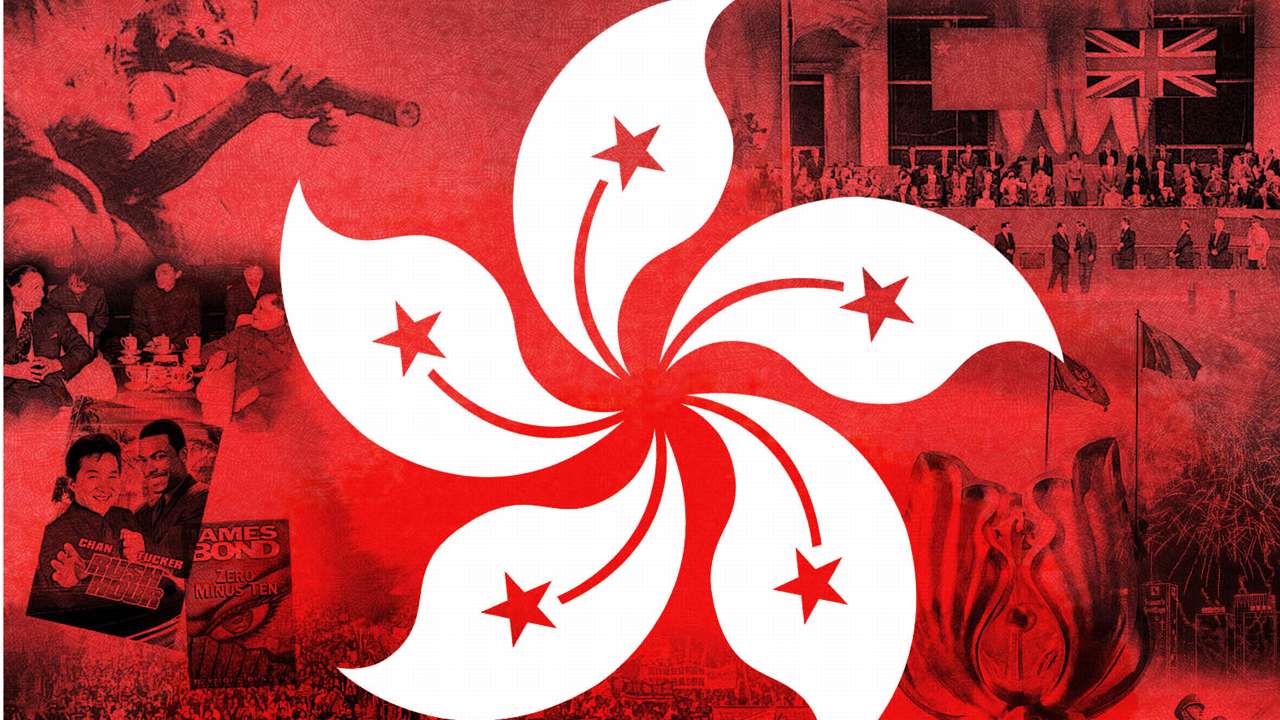This article is written by our Editorial Board, consisting of David Daigneault, Grace Choi, Yeji Kim, Peter Ma, Farryzki Noor Thoriq, Tyler Carriaga
As the world took in the outcome of the recent U.S. election, which saw the historical return of Donald Trump to the White House, the executive team at Synergy: Contemporary Asian Studies Journal, were all thinking about one thing. How Donald Trump’s return will undoubtedly reverberate beyond America’s borders, especially in the Asia-Pacific region. Trump’s re-election introduces a wave of uncertainty in Asia, as foreign leaders brace for dramatic shifts in U.S. foreign policy from the way it had been under the Biden administration. Considering Trump’s previous policies in 2016 and the plans he has outlined for Project 2025, scholars anticipate from potential renewed engagement with North Korea and Russia to a more confrontational stance toward Xi Jinping in China. Overall, there is no doubt that the Trump administration will bring significant changes in security, economic alliances, and regional stability in Asia, and this article goes briefly, yet effectively, where and how these implications could translate on the ground.
East Asia:
China reacted cautiously to Trump’s re-election. The Chinese foreign ministry offered a largely muted response, calling the election “its [United States’] internal affair” and stating that China “We respect the choice of the American people”.1
However, the foreign ministry’s muted response masks anxiety and glee from the Communist Party, as Trump’s return offers both challenges and opportunities for China. During Trump’s first term, Trump engaged in open economic warfare with China, leveraging harsh tariffs and restricting American technological exports to China.2 Such measures are expected to continue or even escalate, as Trump boasted about leveraging high tariffs on China during his re-election campaign,3 and selected anti-China hawks like Marco Rubio for prestigious positions within his Cabinet.4
In terms of military competition with the US over the Indo-Pacific, Trump sends mixed signals. Trump’s isolationist tendencies, his willingness to engage with authoritarian leaders, and his lambasting of Taiwan for not paying for American defense, opens opportunity for detente between China and the US, as well as advancement of Chinese domination over the Indo-Pacific as the US enters a period of renewed isolationism.5 However, Trump’s elevation of anti-China hawks in senior positions sends an opposing signal, showing that, despite his complaints about his allies and his pro-authoritarian tendencies, the second Trump administration will continue to confront and compete with China over global dominance and influence.
Still, there is little reason to believe that China’s long-term plan to supplant the US as the world’s leading power will be halted by Trump’s return. Wang Huning, the Communist Party’s leading ideologue, has long argued that America’s internal political, cultural and racial conflicts, as well as rising economic inequality, will lead to chronic political stability that eventually enables more efficient authoritarian regimes to supplant its role as the global superpower.6 For the Communist Party’s long-term planners, growing political polarization and an increasingly unstable relationship with America’s traditional allies due to Trump’s return indicates that Wang’s prophecies remain true, and it’s only a matter of time before Chinese authoritarianism trumps American liberal democracy.
The South Korean government is taking a cautious stance on Trump’s return to the US presidency, signaling its commitment to bolstering bilateral ties while voicing concerns about the potential economic, security, and alliance-related repercussions of his second term. Trump’s proposal to impose a 60% tariff on Chinese goods and a universal 10% tariff on all foreign imports could pose significant risks to South Korea’s export-oriented economy. Experts predict that if these tariff policies are implemented, Korea’s exports could decline by a total $44.8 billion over several years, reducing its economic performance by an estimated 0.67%.7 Adding to these challenges, Trump has long criticized the U.S.-South Korea military drill as costly “war games,” creating concerns about Washington’s reliability as a defense partner.8 In response to growing uncertainty, President Yoon Seok-yeol is seeking to strengthen security ties with Washington through enhanced trilateral cooperation among South Korea, Japan, and the United States.
Southeast Asia:
Southeast Asian leaders largely congratulated Donald Trump on his 2024 election victory, expressing hopes for continued collaboration despite potential challenges. These reactions are likely due to the uncertainty of how Trump’s proposed foreign policies on China could affect the region. Countries like Thailand, Malaysia, and Vietnam had benefited from the offshoring of Chinese businesses during Trump’s first term, but the president-elect proposed policies that could further reshape these dynamics.9 Self-proclaimed the ‘Tariff Man,’ Trump has suggested imposing tariffs as high as 60% on Chinese imports, raising concerns about the ripple effects on the regional economy.10 Additionally, an intensified “America First” agenda, which prioritizes reducing imports of foreign-manufactured goods, will likely disrupt Southeast Asia’s export-driven growth models. While leaders remain diplomatic, the prospect of stricter U.S. trade policies could challenge established economic ties, prompting governments to reassess their economic strategies. This reaction highlights the region’s cautious optimism and its recognition of the shifting global trade environment under Trump’s return to leadership.
Trump’s return could also negatively shift the regional alliances, economic regimes and environmental dynamics. During his previous term, his administration rolled back climate regulations and prioritized fossil fuels, leading to uncertainty about future US investments in Southeast Asia’s green transition.11 Should the US focus instead on bolstering oil, gas, and other extraction industries, Southeast Asia may find itself deprived of key resources for its carbon transition goals.12 Additionally, Trump’s administration has historically pursued inward-looking policies, with limited support for foreign aid and development programs under the aforementioned “America First” policies. If this trend continues, Southeast Asia’s development trajectory could be significantly hindered as US support is critical for various infrastructure and humanitarian projects across the region.13 Finally, Trump’s unpredictable stance on maintaining global alliances may test ASEAN unity, with Southeast Asian states possibly choosing to align more toward the interest of Beijing rather than Washington.
- PTI, “China Reacts Cautiously to Trump’s Victory,” Deccan Herald, November 6, 2024, https://www.deccanherald.com/world/china-reacts-cautiously-to-trumps-victory-3265279. ↩︎
- PTI, “China Reacts Cautiously to Trump’s Victory,” Deccan Herald, November 6, 2024, https://www.deccanherald.com/world/china-reacts-cautiously-to-trumps-victory-3265279. ↩︎
- PTI, “China Reacts Cautiously to Trump’s Victory,” Deccan Herald, November 6, 2024, https://www.deccanherald.com/world/china-reacts-cautiously-to-trumps-victory-3265279. ↩︎
- Shweta Sharma, “Trump’s Pick of Marco Rubio as Secretary of State Ignites Fears of Fiercer US-China Rivalry,” The Independent, November 18, 2024, https://www.independent.co.uk/asia/china/trump-marco-rubio-state-secretary-china-b2647635.html. ↩︎
- Alexander Noyes, Andrew Yeo, Constanze Stelzenmüller, James Goldgeier, Jeffrey Feltman, Lynn Kuok, Mara Karlin, et al., “How Is Trump’s Reelection Likely to Affect US Foreign Policy?” Brookings, November 14, 2024, https://www.brookings.edu/articles/how-is-trumps-reelection-likely-to-affect-us-foreign-policy/#trump-and-taiwan-245. ↩︎
- Wang Huning, America Against America, 1991. ↩︎
- Joyce Lee, and Cynthia Kim, “South Korea’s Yoon Praises Trump in Phone Call as Trade Officials Brace for Tariffs,” Reuters, November 7, 2024, https://www.reuters.com/world/south-koreas-yoon-trump-discuss-continuing-close-security-economic-ties-seoul-2024-11-07/. ↩︎
- William Gallo, “Facing Trump’s Return, South Korea Tees up for Alliance Strains,” Voice of America (VOA News), November 14, 2024, https://www.voanews.com/a/facing-trump-s-return-south-korea-tees-up-for-alliance-strains/7863495.html. ↩︎
- Meghan Murphy, “How Southeast Asia Responded to the US Presidential Election,” The Diplomat, November 8, 2024, https://thediplomat.com/2024/11/how-southeast-asia-responded-to-the-us-presidential-election/. ↩︎
- F. Muchai, Trump and China play tariff games, but Southeast Asia might be the biggest piece on the deck, MSN, November 18th, 2024, https://www.msn.com/en-us/money/markets/trump-and-china-play-tariff-games-but-southeast-asia-might-be-the-biggest-piece-on-the-deck/ar-AA1um6Fg?ocid=finance-verthp-feeds. ↩︎
- Benjamin Wang, “Energy Security and Renewables in Asia: The U.S.-China Rivalry,” Asian Affairs 52, no. 3 (2021): 345-362. ↩︎
- John Green, “The Future of Fossil Fuels and Renewable Energy in Asia: The Role of the U.S.,” Journal of Asian Studies 78, no. 2 (2020): 189-210.
↩︎ - Peter Jones, “U.S. Foreign Aid Policy and Southeast Asia: Challenges and Shifts,” International Development Quarterly 11, no. 1 (2019): 25-47. ↩︎







